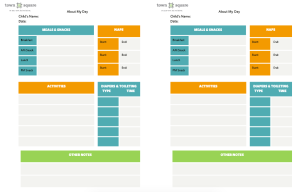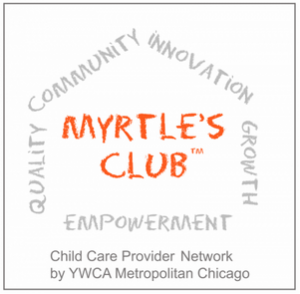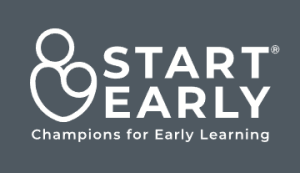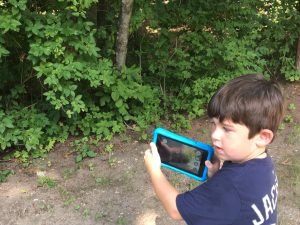It doesn’t happen often,but for the days that all of the children are resting at once, it’s worth making a professional development binder with articles and resources that you would like to spend time thinking about but are not urgent.
Your professional development binder can be used for you and your staff members as you find information that’s relevant. It may be worthwhile to also include some blank pages after each article to use for your or your staff reflection or communication.
Materials:
You don’t need much to get started, just access to a printer and a three-ring binder, and pencils or highlighters for your own notes. Alternatively, you can create a shared digital document using Google Drive (free!) or any other internet-enabled word processing software.
Be sure you’re getting staff buy-in by providing articles on topics they’ve expressed interest in and invite them to add resources as well.
Of course, Town Square articles are here to support you, but here are some more great resources:
Playvolution HQ | Creating & Curating Early Learning Resources
Everyday Education – National CACFP Sponsors Association (resources for food allergies, nutrition and safety!)
Be a critical consumer:
When you read, ask yourself the following questions:
- What do I agree with?
- What doesn’t sit right with me?
- How is this similar to what I’m already doing?
- How is this different from what I’m already doing?
- How can I apply this to a specific child?
- Would this be a good resource to share with families?
This four-part webinar with printable posters and resources from the National Center for Healthy Housing is specifically created for family child care providers to partner with families to prevent children and pregnant parents from coming in contact with lead and take necessary steps to remediate if lead is found in homes or via bloodwork, including links to financial assistance for lead remediation.
Babies born with high levels of lead in their blood are more likely to be born prematurely, be small for their gestational age, and grow more slowly than they should. Children exposed to lead may have developmental delays, learning difficulties, hearing loss, seizures, and more. Family child care providers can be great advocates for families in getting children tested for lead exposure and spreading information about places lead-containing materials may be hiding.
View all materials here: Lead-Safe Toolkit for Home-Based Child Care | NCHH
Give families a snap shot of their child’s day in care! Prints two sheets per page.
Wisconsin Early Childhood Association (WECA), the state affiliate of the National Association for the Education of Young Children (NAEYC), serves and engages the early childhood workforce and supports early care and education in Wisconsin. WECA provides professional development guidance and case management in the form of academic, non-academic, and career counseling to requested YoungStar participating programs.
The Center on the Social and Emotional Foundations for Early Learning provides resources for parents, teachers, and providers with the goal to improve the social and emotional outcomes of young children. The resources include trainings and modules as well as resources specific for teachers and caregivers to download, all geared to help adults meet the social and emotional needs of young children.
This guide offers much of the information you will need to get started in your family child care business in Illinois. There are sections about planning for your business, preparing your home, creating a contract, planning meals, and much more. This overview of the process is a helpful resource for understanding the steps in becoming a licensed family child care home.
Town Square has joined Myrtle’s Club as a resource to support child care providers.
“Myrtle’s Club™ was designed to support child care providers by making available high quality training opportunities on topics ranging from curriculum to business basics, services that support the business side of child care, and to increase the purchasing power for our providers. By assisting child care providers in this way, the YWCA is helping support providers on the path to improving quality and educational programs for their students.”
As a provider who is a member of the Myrtle’s Club network, you can access training, professional development, business support services, as well as materials and resources that help you maintain your licensing and enhance your work at a discount. Check out what is available and the membership levels at: YWCA of Metropolitan Chicago: Myrtle’s Club.
Activities: family child care focused activities that support the development of children in multiple learning domains.
Business: tips and resources that will help you run your small business.
Learning: tips, resources, research, articles, and more on how to support young children’s learning.
Perspective: blogs, resources, and ideas from your fellow family child care providers.
Wellness: tips, resources, articles and more about health and wellness in children as well as providers.
To discover more about these topics click on these areas under the Discover Tab.
Start Early‘s goal is to promote high quality early childhood experiences for all young children, particularly those who are born into poverty. They offer resources and programs based upon the latest research and theories in child development. They partner with many advocacy organizations and offer publications, videos, and tools for families and professionals related to advocacy.
Town Square Research to Practice Statements offer information from theory and research with examples and suggestions for what it means in your work with children. This series of position statements includes topics such as the benefits of a home-like environment, the power of open-ended materials, and the benefits of incorporating the arts.
Town Square Research to Practice: Using Technology as a Tool to Support Learning and Development







